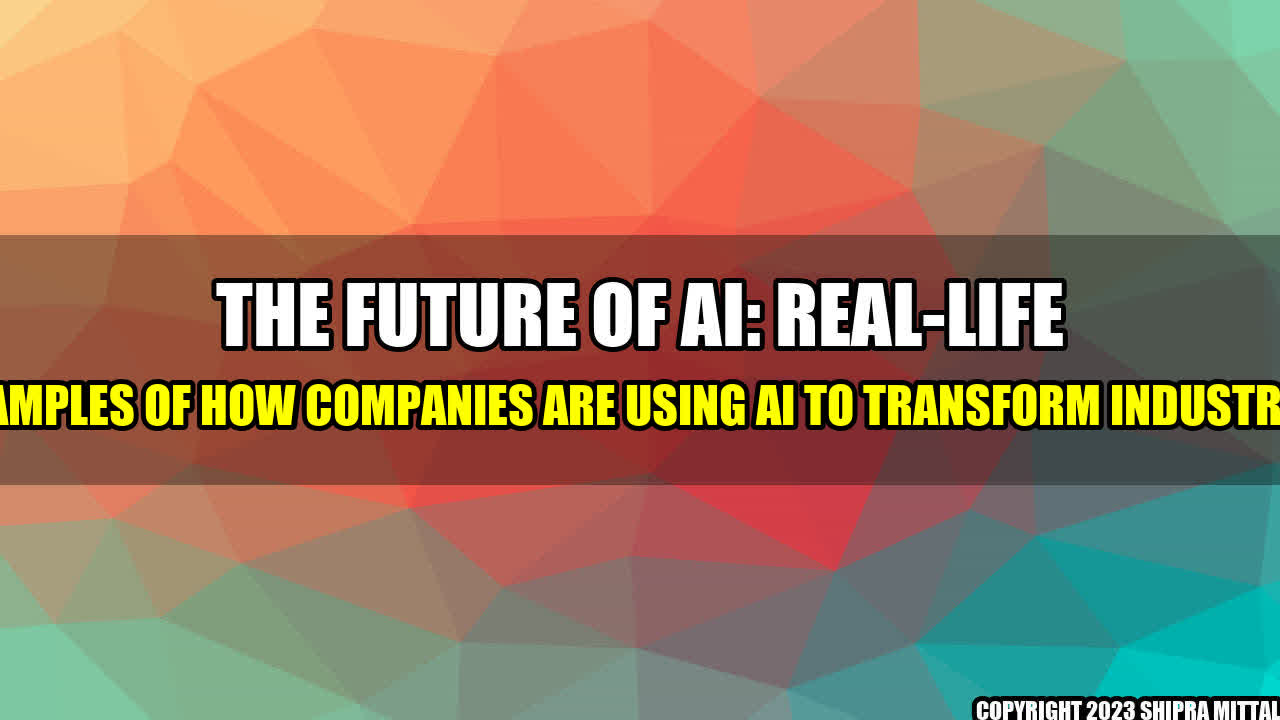Imagine a world where doctors could accurately diagnose diseases with 95% accuracy in real-time, where e-commerce websites could predict and offer products based on consumer behavior, where automotive vehicles could detect and prevent accidents - all powered by artificial intelligence. Well, this is not an imagination anymore. With the rise of AI, these ideas are turning into reality.
Real-Life Examples
Big companies like Google, Amazon, Microsoft, and Tesla are revolutionizing the way we live by using AI to optimize their services and products. Google's DeepMind AI system is now able to accurately detect breast cancer in mammograms with higher accuracy than human doctors. Amazon's recommendation engine uses AI to suggest products based on your previous searches, interests, and purchases. Microsoft's HoloLens uses AI to help firefighters detect and navigate through a burning building. Tesla's autonomous driving AI is helping to reduce traffic accidents in a major way.
Other industries such as finance, retail, and transportation are also using AI to transform their businesses. JPMorgan Chase is using AI to detect and prevent fraud, Walmart is using AI to optimize their supply chain, and AirAsia is using AI to personalize the customer travel experience.
These real-life examples showcase the immense potential of AI to make our lives easier, safer, and more efficient.
Conclusion
- AI is no longer the future - it is the present. Companies that do not embrace AI will be left behind.
- AI has the potential to solve some of the world's biggest problems - from healthcare to climate change.
- However, the ethical implications of AI need to be carefully considered and addressed to ensure that we can use this technology for good.

Akash Mittal Tech Article
Share on Twitter Share on LinkedIn